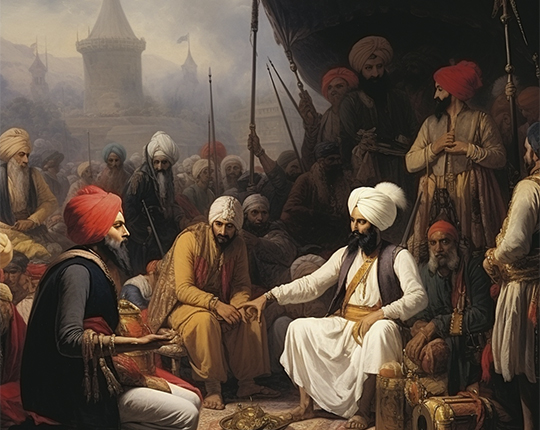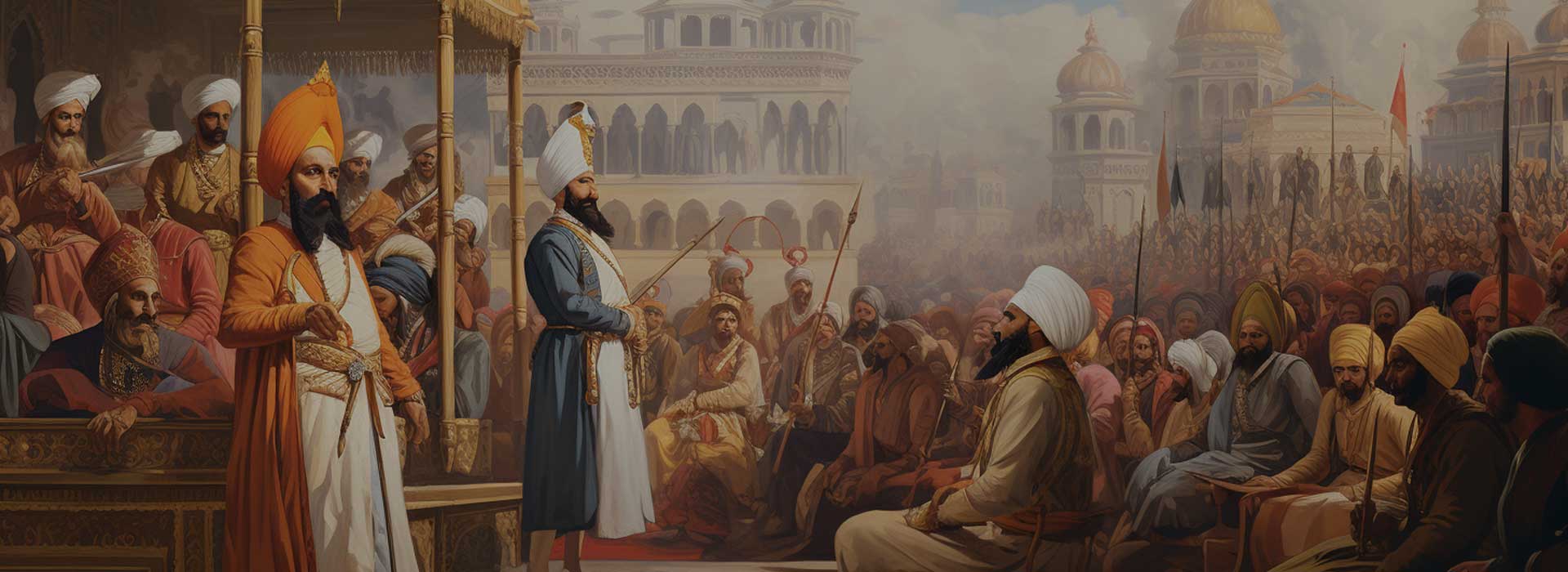Equity and Fairness in Maharaja Ranjit Singh’s Empire
A definite Sikh regime started in 1799 when Maharaja Ranjit Singh took control over Lahore. He was indeed, an ideal, intelligent, and successful ruler who had a peaceful, united and glorious kingdom.
Maharaja Ranjit Singh made changes in how the government works, putting power in one central place.
- He accepted every religion and culture and this was clear in the different kinds of people he chose to work in the government.
- Ranjit Singh’s employees, including Generals, and Courtiers were from many different religious backgrounds.
- These all facts show that he operated an equal and fair governance by welcoming everyone to be a part of the administration.
This helped in better decision-making and things to be organized with a flavor of Equity and Fairness and His unique governance was the backbone of an everlasting empire, quality life and a system of equitable justice.

Maharaja Ranjit Singh set up different departments in his government to make things fair and equal for everyone.
These departments played a role in securing if:
- Everyone was treated justly.
- No differentiation is present in the system.
- The government is running efficiently.
- Taxes are fairly paid on time.
- Every religion is respected.
- Neighbouring rulers are treating foreign countries nicely.
- Messages and information were sent correctly and to the right person etc.
Here’s how these departments helped in making things fair:
Equity and Fairness in Handling Money
- The departments managed money in a way that was open and fair.
- It ensured that the resources were distributed fairly and that no one was treated unfairly financially.
Fair Taxes in Ranjit Singh Empire
- Some departments dealt with taxes and duties.
- They made sure that taxes were the same for everyone, treating people and goods equally without any bias.
- Timely collection.
Welcoming Different Beliefs
- Ranjit Singh enrolled officials from different religions in his departments.
- It clearly showed that the government was open to and accepting of different beliefs.
- This approach treated people from diverse backgrounds equally.
Equity and Fairness in Holding People Accountable
- Other departments took care of penalties, military accounts, and legal matters.
- This emphasized that everyone, including those in the military, was accountable for their actions, promoting fairness and justice.
Dealing with Other Countries Fairly
- One department managed relationships with other countries.
- It ensured that the ruler treated neighbouring states fairly and had fair interactions with foreign countries.
Making Noble, Equal and Fair Decisions
- Some departments were made for governance and decision-making.
- This organization of administration reviewed the important documents before reaching the ruler.
- It helped in making fair and informed decisions.
Keeping Good Records:
- A department took care of financial record keeping records ensuring it was as per rules.
- It was made to inspect if the government is running on established rules and regulations.
Preserving Culture and Treating Everyone Right
- A department was also responsible for preserving cultural items and managing affairs related to the royal family.
- This showed a commitment to treating everyone fairly.
- It preserved important aspects of their culture.
Through these departments and systematic administration, Maharaja Ranjit Singh made himself certain of if everyone under his rule was treated equally, every religion was seen with respect, nobody was harmed for following certain beliefs, taxes were collected despite official position, money was managed & spent wisely, neighbour kingdoms are in good position, decisions are made transparent and every culture is managed and preserved.
